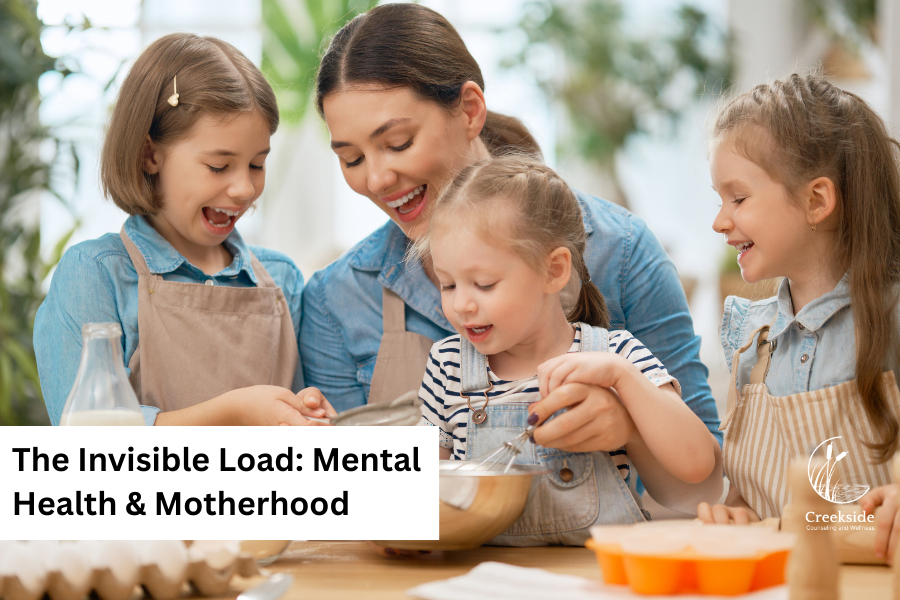Motherhood is often celebrated in visible ways—birthday parties, milestone moments, back-to-school photos. But behind the smiles and schedules lies something much harder to see: the mental and emotional labor that many mothers carry daily. This invisible load includes planning, decision-making, and emotional regulation for everyone in the household—navigating a child’s bad day, tracking needs before they’re spoken, sensing what emotions are bubbling beneath the surface.
Also running in the background is the constant pressure to meet unspoken expectations—the ones no one says out loud but are deeply felt: stay calm, keep the household running, meet every need, and never complain. These invisible standards can leave moms feeling like they’re falling short, even when they’re doing everything.
Unlike physical tasks, this kind of labor often goes unrecognized, yet it demands enormous energy—even when the house is quiet. Over time, carrying it alone can contribute to anxiety, irritability, emotional exhaustion, and a deep disconnection from one’s own needs and identity. Then summer break arrives. Often romanticized as carefree, it can actually magnify this weight. With kids home from school, routines shift dramatically. Many moms find themselves juggling more noise, more needs, and far less personal time. The absence of school-day structure can stir up guilt (for not “making summer magical”), anxiety (about keeping everyone safe or entertained), and resentment (for carrying most of the mental load). These are deeply human reactions, but they’re also rarely discussed out loud.
For some, this overwhelm taps into long-held beliefs: I can’t rest. I’m supposed to handle everything. If I ask for help, I’ve failed. These self-limiting beliefs often stem from early experiences, cultural messages, or even generational expectations—and they’re deeply embedded in how we move through motherhood.
This is where EMDR (Eye Movement Desensitization and Reprocessing) can be an incredibly helpful therapeutic tool. EMDR is effective in targeting the internalized messages and experiences that shape how mothers relate to their needs, worth, and identity. Whether it’s a past experience of being unsupported, a belief that rest is selfish, or a fear of being “not enough,” EMDR helps uncover where these beliefs began and offers the brain and body a second chance to reprocess them—so they no longer carry the same emotional weight.
Many mothers describe feeling lighter, calmer, and more able to set boundaries after EMDR therapy. They begin to reconnect with themselves not just as caregivers, but as whole people—worthy of rest, joy, and emotional support. And when the internal pressure softens, it creates more space for connection, presence, and even play—especially in the unpredictable rhythm of summer.
If you’re feeling overwhelmed by the mental load of motherhood right now, know this: you’re not alone, you’re not doing it wrong, and there is support. You don’t have to carry it all without
help.
by Bonnie Barclay, LCSW

